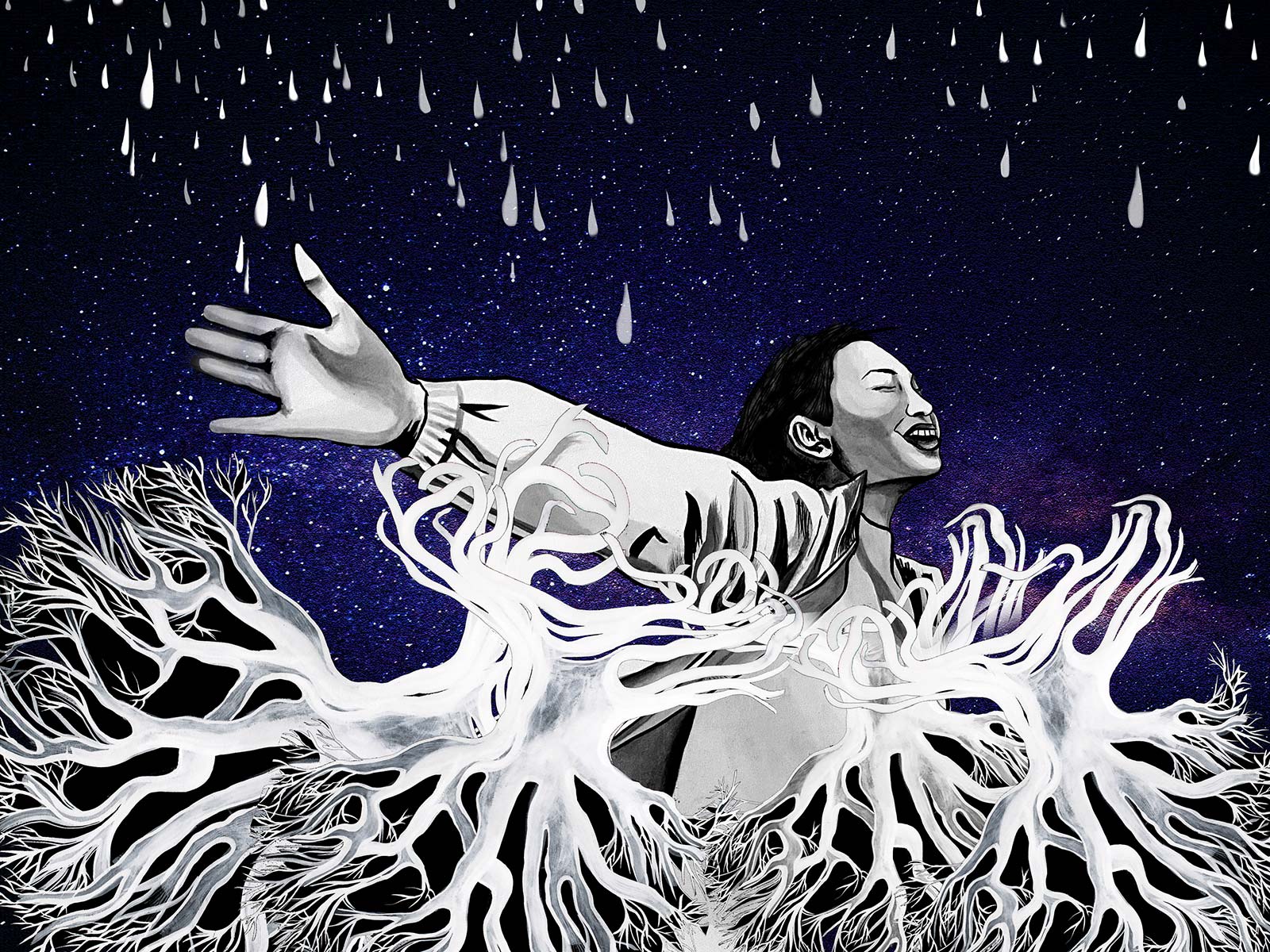by Melanie Katz
The Buddhist strategy of liberation finds its foundation, on one level, in the strategic tension between concentration and mindfulness, which is to say the relationship between suppression and investigation, control and exploration—dynamics that are equally fundamental to our work for social change.
Mental concentration creates the fabricated conditions under which defilements are repressed and mindfulness can operate without impediment. When we focus our attention on the breath, for example, to the exclusion of all else, a cocoon of protection allows the investigative work of mindfulness to do its job without distraction. It is in this relationship of whole-hearted interest where the mind comes to understand the nature of the body, of the clinging, angry, and delusional heart, and through this understanding is liberated by wisdom.
But this relief from defilements through control is itself addictive, and the suppression can be used to merely reinforce the strength of our cocoon without taking the risk of the deeper, and inevitably more disturbing, investigation inspired by mindfulness. Concentration cannot be enforced forever, and when the energy that maintains it drops away, we are faced with an uprising of all the unattended rage, fear, and craving we had been keeping at bay. Concentration and control can create supportive conditions for our practice, but they themselves cannot uproot ignorance or greed or hatred. Only understanding, propelled by mindful investigation can do that.
On the collective level, we are engaged in a constant battle about who will control the conditions of our social development. Right now, many of us on the losing side of that battle wonder what went wrong and how we might protect our interests during this next era while still attempting to deepen the movement toward liberation on a social scale.
During the previous epoch, when relatively liberal forces had a modicum of control, effort was made to restrict the most severe impact of our most egregious social defilements, but perhaps precious little was put into developing relationships of deeper understanding across the wider spectrum of our society with whom it would be necessary to foment a deeper solidarity that could undergird a broad alignment for social progress. Instead, this meager dose of fleeting social power might have enticed us into efforts to reinforce our control, to deepen that concentration, while neglecting the work of investigative relationships across lines of difference. Perhaps that power did not feel stable enough to risk a jump into investigation. Could it ever? While we never attained the degree of control we longed for, we nevertheless may have paid the price of social concentration without social mindfulness as we have seen in the explosion of the repressed elements in our society whose pains were left unattended.
Now we find ourselves at the other end of the power spectrum, with very little capacity to enforce the protection of our social concentration, and in that are subject to growing fears of the potential ravages of liberty without wisdom, freedom without compassion, capitalism without constraint.
Fortunately, we can practice mindfulness without concentration; we can deepen the exploration of values and fears and concerns without the protective suppressive container of power and control. It is harder. It is not ideal. It is undeniably more dangerous. But the benefits are that we meet anger face to face, we meet despair on its most powerful terms, we meet confusion and unknowing everywhere we turn our gaze. There is nowhere that the call to deeper wisdom and greater compassion is not beckoning us into the furthest reaches of our hearts.
Over the long term, we need to examine our strategies for the times when we have power and make sure that we use it not only to maintain control over longer periods of time, but to do so by investigating, addressing, and uprooting the underlying dynamics that still require us to enforce that power. But in this era and under these conditions, we will need to find safety, at times, in retreat. It is the only choice for the outmaneuvered, the outnumbered, and the outgunned. It is an existential necessity to create protective conditions wherever we can and to use those spaces as sanctuary and as a base of operations for the deeper work. I believe that Center for Whole Communities is uniquely capable of doing this, of furthering this work of understanding by creating spaces and cultivating skills that can help people investigate their deeper and shared values and visions that will help us move forward together, across profound lines of difference, and in powerful and as yet unknown ways. Their practices of dialogue, story, working with difference, and fostering creativity, among others, provide a powerful set of techniques to deepen the ability for groups to engage in this work successfully. This capacity for authentic relationship is rare in the world and is our only hope for the creation of a peace that is not mere suppression, for a justice that requires no enforcement, for a liberty that is motivated by the wisdom and care arising spontaneously from the deep and tempered heart of a liberated people.
Jesse Maceo Vega-Frey is a teacher of Vipassana (insight) meditation within the broader context of the Theravada Buddhist tradition. His teaching aims to inspire the skills, determination, and faith necessary to realize the deepest human freedom and an exploration of the relationship between ethics, insight, and action. Jesse is a student of Michele McDonald and was trained by her to teach in a method rooted in the tradition of Mahasi Sayadaw of Burma. He is the resident teacher for Vipassana Hawai’i and when off-island teaches mostly in the US and Canada.
Check out his schedule, teachings, and writing at www.dolessforpeace.org
